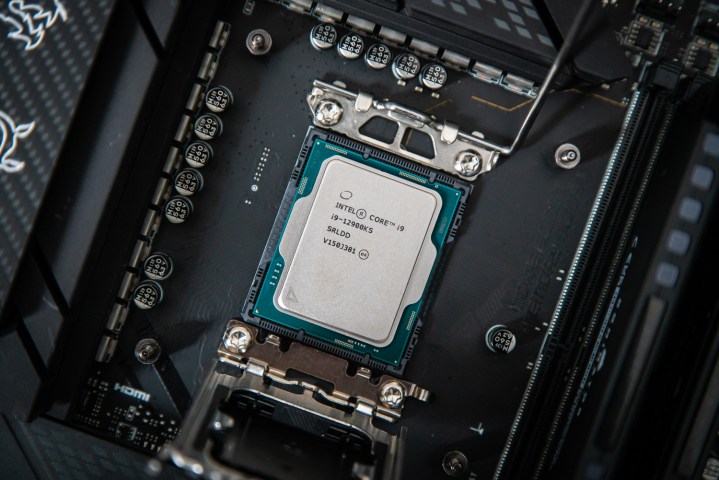
Intel is moving on. The company recently posted two Product Change Notifications (PCN) that announced the discontinuation of multiple processors, including the Core i9-12900KS that was released just over two years ago.
In addition to the special-edition version of the Core i9-12900K, Intel announced that it’s discontinuing the remaining CPUs in its 10th-gen lineup. The main stack of Intel’s 10th-gen lineup, including processors like the Core i9-10900K, has already been discontinued. The newest PCN includes less prominent models, such as Intel’s Pentium and Celeron lineups. It also includes the Core i5-10400F, which has remained one of the more popular budget options among Intel’s CPU options.
The Core i9-12900KS stands out, however. Intel didn’t release a “Special Edition” model for its 10th-gen or 11th-gen flagship CPU. Prior to the Core i9-12900KS, the last one we saw was the Core i9-9900KS, which was released in 2019 and discontinued a little over a year later. The Core i9-12900KS lasted longer, but it sets a new cadence for Intel. The company has released a Special Edition model for both the Core i9-13900K and Core i9-14900K, which will likely be discontinued in a similar time frame.
The change goes into effect at the beginning of 2025, so you still have plenty of time to pick up a Core i9-12900KS. It’s remarkably cheap right now, too. You can pick up the 16-core , which is a downright deal compared to the $800 list price it launched at just over two years ago.
If you’re planning on picking one up, you should do it soon. After the CPU is discontinued, the price will likely go up. That’s been the case with the Core i9-9900KS, which is actually more expensive than the Core i9-12900KS right now. You’ll spend around $400 on a preowned model, and up to $550 on a new one.
As a Special Edition, the Core i9-12900KS always had a limited shelf life. Intel hasn’t discontinued any other models in its 12th-gen lineup, and although the Core i9-12900KS is biting the dust, that doesn’t mean it’s a bad buy. Come next year, Intel will stop accepting orders for the CPU, but it will continue to provide support to customers with the CPU.
With the 10th-gen lineup, Intel is bidding farewell to its 14nm era. Intel discontinued its 11th-gen processors last year, and these last few 10th-gen models officially close the door on 14nm. Intel struggled for several generations to move on from its 14nm node in the face of fierce competition from AMD’s Ryzen CPUs, eventually leading to the Intel 7 process and the introduction of 12th-gen CPUs.



